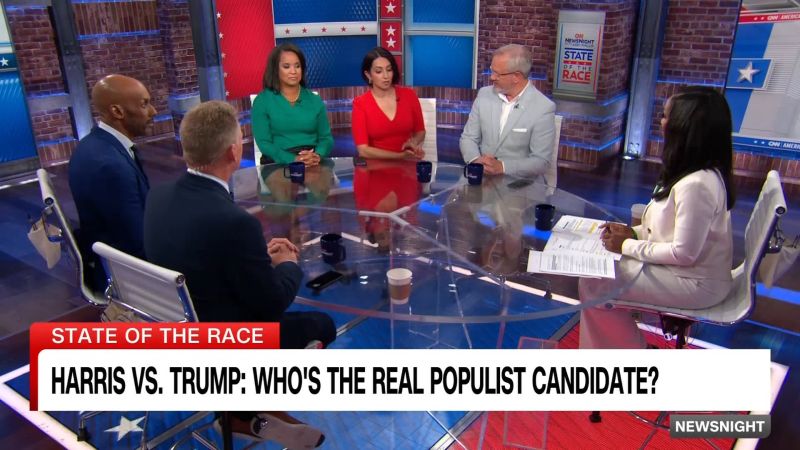In a recent segment on NewsNight, former Obama White House official Nayyera Haq discussed the populist messages of both Donald Trump and Kamala Harris. Haq highlighted that Trump’s populist message has been “very limiting,” as it is often divisive and focuses on stoking fear and resentment among his supporters. She noted that Trump’s brand of populism has alienated many groups and failed to address the underlying economic issues facing Americans. In contrast, Kamala Harris is embracing elements of populism in her economic agenda, taking a page out of Trump’s playbook. This shift raises questions about who the real populist candidate is in the upcoming election.
The panelists on NewsNight deliberated on the nuances of populism and how it is being utilized by both Trump and Harris in their messaging. While Trump’s populism has been criticized for its divisive nature, Harris is attempting to tap into similar themes to connect with voters on economic issues. The discussion highlighted the complexities of populism as a political strategy and how it can be used to appeal to different segments of the population. Haq’s comments underscored the idea that Trump’s brand of populism may have limitations in terms of its effectiveness and inclusivity.
Furthermore, the panelists examined the potential implications of Harris adopting elements of populism in her economic agenda. By appealing to populist sentiments, Harris may be able to rally support from a wider range of voters who are seeking change and solutions to economic challenges. However, there is also a risk of alienating certain groups or failing to deliver on promises made during the campaign. The debate around the true nature of populism and how it is being wielded by different candidates reflects the broader political landscape leading up to the election.
Overall, the discussion on NewsNight shed light on the evolving nature of populism in American politics and how it is shaping the current election cycle. From Trump’s divisive style of populism to Harris’s more inclusive approach, the panelists analyzed the strategies being employed by candidates to connect with voters and address economic concerns. While populism can be a powerful tool for mobilizing support and driving change, it also carries risks and challenges that need to be navigated carefully. As the election draws nearer, the role of populism in shaping public discourse and influencing policy decisions will continue to be a key theme for voters and political analysts alike.
In conclusion, the debate over populism in the current political landscape is complex and multi-faceted, with different candidates utilizing this strategy in various ways. While Trump’s brand of populism has been criticized for its divisive nature and limitations, Harris is leveraging elements of populism in her economic agenda to appeal to a broader range of voters. The discussion on NewsNight highlighted the nuances of populism as a political tool and the implications of its use in shaping public opinion and policy decisions. As the election approaches, the role of populism in driving voter engagement and shaping the political discourse will continue to be a topic of interest and debate. Ultimately, the effectiveness of populism as a political strategy will depend on how candidates are able to connect with voters and address their concerns in a meaningful and inclusive way.













